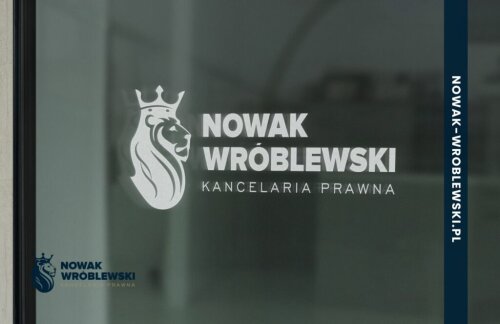Best Tax Increment Financing Lawyers in Tarnobrzeg
Share your needs with us, get contacted by law firms.
Free. Takes 2 min.
List of the best lawyers in Tarnobrzeg, Poland
1. About Tax Increment Financing Law in Tarnobrzeg, Poland
Tax Increment Financing (TIF) in Tarnobrzeg is a municipal mechanism used to fund redevelopment within a designated district. The city identifies an area with redevelopment potential and forecasts the future increase in property tax revenue generated by new investments there. The incremental tax revenue, or tax increments, is typically earmarked to finance public improvements in the district such as roads, utilities, or site remediation.
In Poland, TIF like arrangements are rooted in local government finance rules and are supervised by national laws and guidelines. The process generally involves a formal designation by Tarnobrzeg's city council, feasibility planning, and oversight to ensure that funds are used for approved public investment projects within the district. The goal is to accelerate investment without raising property tax rates for existing property owners outside the district.
Residents and businesses in Tarnobrzeg should understand that a TIF district changes the way future tax revenues are allocated for a set period, after which the district may dissolve and ordinary tax flows resume. For any concrete plan, you should review the district’s approved boundaries, project list, and the projected financing period.
Sources: official government resources explain the design and oversight of local government financing and development instruments that include TIF-style approaches. See the Ministry of Funds and Regional Policy and the Ministry of Finance for guidance on how such instruments fit into national public finance rules.
“Local governments use tax increments to fund infrastructure and redevelopment within designated districts, subject to statutory oversight.”
References: Ministry of Funds and Regional Policy, Ministry of Finance.
Additional legal context for Polish local finance and public investment rules can be found in official regulations and statutory texts such as the Dziennik Ustaw (Official Journal of Laws).
Legal texts and updates: Dziennik Ustaw.
2. Why You May Need a Lawyer
- A developer plans a major project in Tarnobrzeg and wants to establish a TIF district. A solicitor can evaluate the feasibility study, prepare necessary documentation, and ensure compliance with national and local rules. This includes reviewing the investment plan, cost estimates, and the proposed financing period.
- You own property inside a proposed or existing TIF district boundary. An attorney can assess how the district’s tax increment mechanism may affect your property taxes and the timing of any tax allocations. They can help you identify risk factors and potential compensation remedies.
- A business is asked to contribute to district infrastructure via incremental tax arrangements. A legal counsel can verify the calculation methods, ensure transparency of the increment forecast, and protect your financial interests.
- You disagree with the city council’s designation or project list for a Tarnobrzeg TIF district. A lawyer can advise on procedural rights, opportunities to appeal, and statutory timeframes for challenges.
- You need to review the TIF management plan for compliance audits and reporting requirements. A solicitor can audit the plan, confirm project eligibility, and review oversight procedures to minimize risk of mis expenditure.
- You are considering appealing a TIF decision or seeking modifications to a district’s boundaries or project scope. An attorney can guide you through the appeal process and document preparation to support your case.
Note: These scenarios illustrate typical situations in Tarnobrzeg where a lawyer’s involvement adds value. Always verify current local procedures with Tarnobrzeg’s city hall and obtain tailored legal advice before acting.
3. Local Laws Overview
Two to three core legal concepts shape Tax Increment Financing within Tarnobrzeg and similar Polish municipalities. The following laws provide a framework for how local governments plan, approve, and manage district financing and investments.
Ustawa z dnia 27 sierpnia 2009 r. o finansach publicznych (Public Finance Act). This statute governs municipal budgets, borrowing, and the management of public funds, including mechanisms to finance investments at the local level. It sets limits on debt and defines transparency and control procedures for public expenditure. Effective since 1 January 2010, the act has been amended multiple times to reflect evolving fiscal practices in local governments, including tools used to fund redevelopment projects like TIF-style arrangements.
Ustawa z dnia 8 marca 1990 r. o samorządzie gminnym (Local Government Act). This foundational law confers authority and responsibilities to gminas, including Tarnobrzeg, to shape local development, set tax policy within the framework of national law, and manage investments. It establishes the governance structures, decision-making processes, and public participation requirements that apply to designation of investment districts.
Ustawa z dnia 12 stycznia 1991 r. o podatkach i opłatach lokalnych (Local Taxes and Fees Act). This statute governs local taxation, including property taxes that interact with district financing. It provides the framework for how tax rates are set and collected by municipalities, which in turn underpins any incremental financing arrangement used to fund local redevelopment projects.
Recent amendments across these areas reflect ongoing reforms to improve transparency, accountability, and efficiency in municipal investment financing. Always check the current text of the law for exact provisions and transition rules, as amendments are common in Polish public finance legislation.
Sources: official government centers describe the roles of these acts in local government finance and development. See Fundusze i Polityka Regionalna and Finances.
4. Frequently Asked Questions
What is Tax Increment Financing in Tarnobrzeg?
Tax Increment Financing is a municipal tool to fund redevelopment by using future tax revenue increases within a designated district. It requires council approval and a planned set of public investments.
How does a TIF district get created in Tarnobrzeg?
A TIF district is created through a formal decision by the Tarnobrzeg city council, followed by a feasibility study and an approved financing plan. Public input and regulatory review are typically part of the process.
When do incremental taxes start after designation?
Incremental taxes begin once new investments increase the district's property values, and the council allocates the incremental revenue to eligible public works within the district.
Where can I find details about Tarnobrzeg TIF zones?
Details are published by Tarnobrzeg’s city hall and public information portals. Look for the district plan, boundaries, and project list, as well as any public notices and meeting minutes.
Why does Tarnobrzeg use TIF financing?
The aim is to accelerate local redevelopment by funding infrastructure and service improvements without raising current tax rates for existing property owners outside the district.
Can I challenge a TIF decision in Tarnobrzeg?
Yes. Affected parties can pursue administrative remedies or appeals within statutory timeframes. Consult a lawyer to prepare the challenge and understand procedural requirements.
Should I hire a lawyer for TIF matters?
Yes. A lawyer can review the district plan, assess risks, and guide you through procedural steps, filings, and negotiations with the city council.
Do I qualify for TIF incentives as a property owner?
Qualification depends on ownership and alignment with the district's development plan, as well as compliance with relevant statutory conditions. A lawyer can assess your eligibility.
Is the incremental tax used only for district improvements?
Generally yes. The increment is designated for public investments within the district, subject to oversight and reporting rules.
What is the timeline for approving a Tarnobrzeg TIF project?
Timelines vary by project complexity. A typical sequence includes district designation, feasibility study, council approval, and contract closure, often spanning months to a few years.
How much can TIF funding cover?
The amount depends on the forecasted tax increments and approved public investments. A detailed financing plan provides the projection and limits.
What documents are required to start a TIF application?
Common documents include the development plan, property ownership details, district boundary maps, cost estimates, and a financing plan outlining increments and project milestones.
What fees are involved in hiring a TIF lawyer in Tarnobrzeg?
Fees vary by scope and complexity. Expect costs for initial consultations, document reviews, and negotiated representation across hearings and appeals.
5. Additional Resources
- Ministry of Funds and Regional Policy - Official guidance on development funds, regional policy, and instruments used by local governments to support investments. https://www.gov.pl/web/fundusze-i-polityka-regionalna
- Ministry of Finance - National fiscal rules, local budgets, and public finances guidance affecting municipal financing and tax administration. https://www.gov.pl/web/finanse
- Dziennik Ustaw - Official journal publishing Polish statutes and amendments related to local government finance and taxes. https://dziennikustaw.gov.pl
6. Next Steps
- Define your objective. Clarify whether you are a property owner, developer, or tenant and what outcome you seek in Tarnobrzeg.
- Identify the district and project details. Obtain the official district plan, boundary map, and the approved list of investments.
- Consult a Tax Increment Financing lawyer. Engage a solicitor with experience in local government finance and Polish tax law to review the plan.
- Review the financing plan and project feasibility. Have your counsel verify how incremental taxes are calculated and allocated.
- Request a formal briefing from Tarnobrzeg city hall. Ask for the minutes, resolutions, and budget documents related to the TIF district.
- Assess risks and rights. With your lawyer, identify risks, timelines, and possible remedies if the process is challenged.
- Agree on a timeline and engagement terms. Confirm fees, milestones, and communication expectations before proceeding.
Lawzana helps you find the best lawyers and law firms in Tarnobrzeg through a curated and pre-screened list of qualified legal professionals. Our platform offers rankings and detailed profiles of attorneys and law firms, allowing you to compare based on practice areas, including Tax Increment Financing, experience, and client feedback.
Each profile includes a description of the firm's areas of practice, client reviews, team members and partners, year of establishment, spoken languages, office locations, contact information, social media presence, and any published articles or resources. Most firms on our platform speak English and are experienced in both local and international legal matters.
Get a quote from top-rated law firms in Tarnobrzeg, Poland — quickly, securely, and without unnecessary hassle.
Disclaimer:
The information provided on this page is for general informational purposes only and does not constitute legal advice. While we strive to ensure the accuracy and relevance of the content, legal information may change over time, and interpretations of the law can vary. You should always consult with a qualified legal professional for advice specific to your situation.
We disclaim all liability for actions taken or not taken based on the content of this page. If you believe any information is incorrect or outdated, please contact us, and we will review and update it where appropriate.









